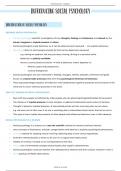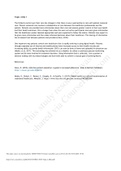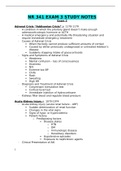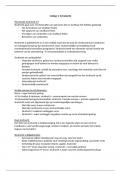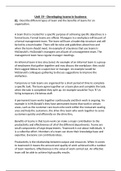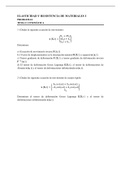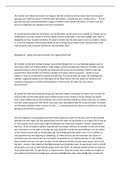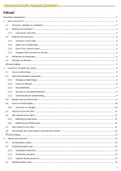Summary
Summary Psychology 324 - Social Psychology
- Course
- Psychology 324
- Institution
- Stellenbosch University (SUN)
These notes cover chapters 1-10 and 11 covered in the Social Psychology module at Stellenbosch University in third year (Psychology 324). These notes are very detailed and are very good at making tough concepts easier to understand. They cover everything you would need to know in the test and exam....
[Show more]
